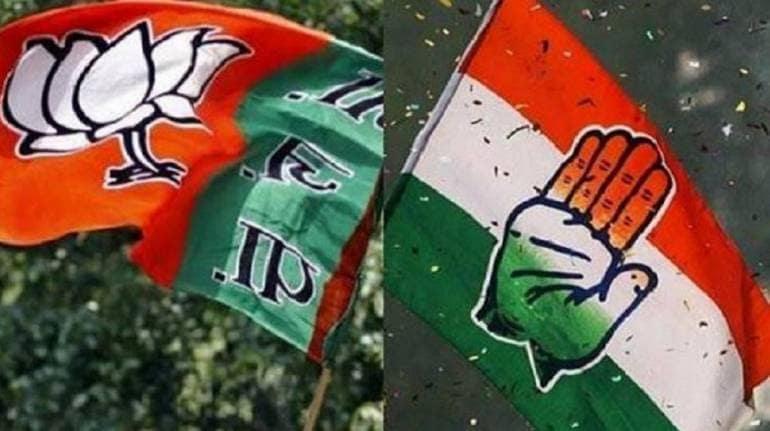



With a few days to go for polling in Karnataka, questions are being asked about what is likely to happen. Opinions differ as to which party is likely to win in Karnataka. Those who mention that Congress is in a position to win, besides other explanations, offer one simple reason: Governments have changed in Karnataka after every election since 1985 and so Congress is the natural choice of the voters this time. But one should not forget, there were other examples like Kerala where the government changed after every election but the 2021 election turned out to be an exception.
There are others who believe it is Bharatiya Janata Party which is ahead in this race and likely to win the Karnataka battle. Those who believe this offer explanations of an electoral trend during the last few years. Since 2020, 17 states went to polls (beginning and including Bihar assembly election), of which 13 governments got re-elected. Government changed only in four states i.e. Punjab, Tamil Nadu, Puducherry, and most recently in Himachal Pradesh.
Contrasting Strategies
Of the 13 states where governments got re-elected, in ten states BJP was the ruling party either on its own or with a coalition partner. The other three states were West Bengal, Delhi and Kerala where Trinamool Congress, AAP and LDF retained power. Defending the government, the BJP lost an election only in Himachal Pradesh that too by a marginal difference in vote share. The high success rate of the BJP while defending its government should be seen as an indicator of an overall mood of the voters in favour of the party.
So there is the argument that most likely voters of Karnataka will re-elect the BJP government, even in Karnataka. The standalone arguments in support of both parties’ chances are strong, but neither of the two helps us in arriving at a decision as there are exceptions in both these trends. Then how do we get a sense of what might happen in Karnataka?
The political battle in Karnataka is between the Congress, BJP and JD(S), but the electoral battle is being contested between the regional vs the national. The BJP is relying heavily on the national narratives, national issues and its national leaders as it goes to the advantage of the BJP. On the other hand, the Congress is banking on the local/regional narrative and local leaders as this helps the Congress.
The JD(S) has no choice but to stick to the local as pitching national issues could be disastrous for it. The party can take cues from its performance during the assembly elections and last two Lok Sabha elections of 2014 and 2019.
Will Corruption Stick This Time?
The two main parties, the Congress and the BJP, are raising the issue of corruption. While Congress is referring to the ruling BJP government as 40 percent commission government, the BJP is referring to 85 percent commission citing what once former Indian Prime minister and Congress leader Rajiv Gandhi said, of every one rupee which is sent by his government only fifteen paisa reaches the people.
Corruption is an issue which concerns the common voters. But it has hardly been an important electoral issue, 1989 and 2014 Lok Sabha elections being the exceptions. The 1989 election was contested on the issue of Bofors scam while during 2014 Elections, the 2G scam, coal scam and few more scams became an important issue.
During the last few years, during opinion surveys, when asked to assess how voters feel about corruption, in 12 out of 13 states people expressed that corruption has increased. But in these 12 states, the electoral outcome was mixed: In six of these incumbent governments got re-elected, while in six they lost.
Corruption is an issue of concern amongst Karnataka voters, but this may not be the issue which would decide the Karnataka electoral outcome as citizens’ voting choices are unlikely to be guided by this issue. Voters do not find significant differences between Congress and BJP on this issue. There are serious concerns amongst the voters about rising prices and increasing unemployment, but parties are evading discussion on these.
Is Voter Thinking Local Or National?
There is a real divide amongst the voters of Karnataka on the issue of reservation, which seems to be dominating the election campaign. Both Congress and BJP are trying to convey to the voters of being the real champion for the cause of reservation with some difference. While BJP is trying to take the credit of giving extra quota to the Lingayats, Vokkaligas, Dalits and Adivasis, Congress is promising higher quota caps.
The religion angle has also been evoked by the BJP and the Congress as the ruling BJP government abolished the 4 percent reservation which was available for the Muslims. The religious divide seems to be creeping into the election campaign.
The election campaign led by various national leaders of BJP are raising national issues more than the local issues. On the other hand, the Congress campaign is led by the local leadership, raising local issues mainly about the misgovernance of the ruling BJP government.
A few more days are left before voters of Karnataka will vote on May 10 to choose their new government. This election is clearly the local vs the national. The “pitch” of the election campaign needs to be watched as these slog overs may be crucial for the electoral outcome in Karnataka.
Sanjay Kumar is a Professor at Centre for the Study of Developing Societies (CSDS). He is also a Political Analyst. Views are personal and do not represent the stand of this publication.
Discover the latest Business News, Sensex, and Nifty updates. Obtain Personal Finance insights, tax queries, and expert opinions on Moneycontrol or download the Moneycontrol App to stay updated!
Find the best of Al News in one place, specially curated for you every weekend.
Stay on top of the latest tech trends and biggest startup news.